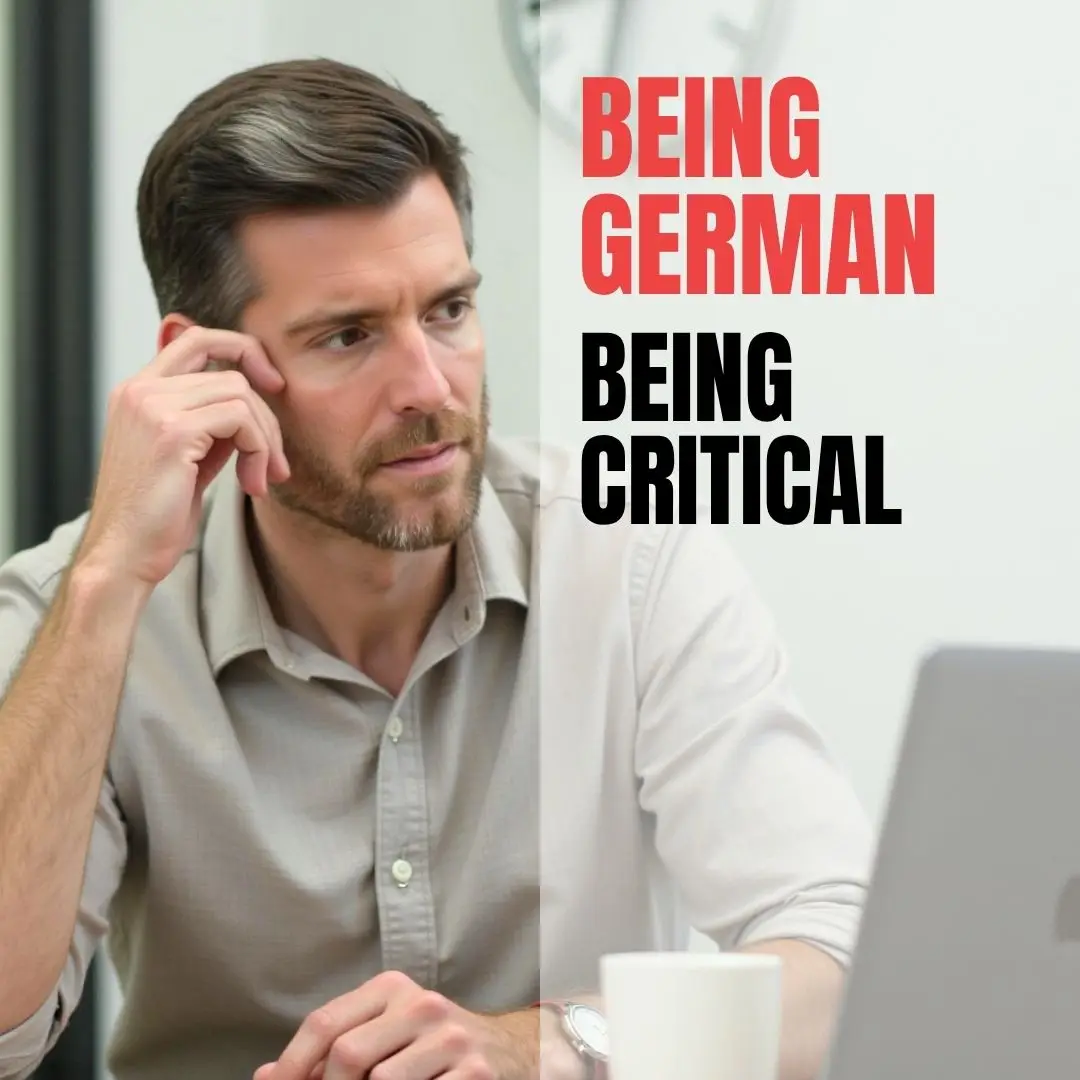Being German. Being critical.
For many of us, the two are closely linked.
Even if we don’t say it that way.
At school, we are taught to challenge texts,
in university, to question theories,
at work, to spot weaknesses,
in interviews, to name what we would improve.
We call it: kritisch hinterfragen.
We rarely explain it, because we think it explains itself.
I used to think this was normal.
That it’s what thinking people do,
that it’s a sign of professionalism, not a matter of culture.
It took me a while to realise:
This habit of questioning isn’t neutral.
It’s deeply embedded in how we define competence and trust.
I used to encourage others to be more critical.
Until I understood: in some contexts, that can be seen as disloyal,
or disrespectful,
or out of place.
I hadn’t thought of that,
because in my world, I never had to.
In Germany, we often treat criticism as a form of engagement.
Not criticising means you don’t care.
But in many cultures, the opposite is true –
not criticising means you respect the relationship.
Maybe it’s time to question the questioning.
Not to abandon it, but to understand its impact.
Not to export it, but to explain it.
Not to apply it everywhere, but where it actually serves.
Maybe this is a mirror for others too.
Especially for those of us who grew up believing:
the more critical, the more competent.
Being German. Being critical.
